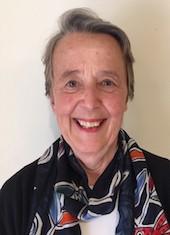In the latest edition of its "Meet the Bookseller" series, the blog for Australia's Readings bookshops in Melbourne featured a q&a with children's book specialist Kathy Kozlowski, who recently was honored with the Leila St John Award, presented by the Victorian branch of the Children's Book Council of Australia for services to children's literature in Victoria for the previous year. Among our favorite responses:
 |
|
| Kathy Kozlowski | |
Why did you decide to work in books and what is your favorite part of the job?
It was a light bulb moment during university when I realized that if I worked with children's books I could forever be in the land of A.A Milne and Walter de la Mare.... I love the conversations about books every day: the stories, the words, the ideas, the illustrations, the jacket design, the marketing, the display, the sales success or failure. I love the fact that to be a good bookseller you have to be aware of, and buying books ahead of, the trends. I have so enjoyed the mixture of types and ages and interests among bookselling staff--artists, musicians, students, photographers, escaped accountants, playwrights, authors, environmentalists and career booksellers. I've worked with them all, and more.
Above all, working as I have done for more than 50 years in children's books, I have been feeding the imaginations of young minds, giving them the ability to see the world through another's eyes, to see myriad possibilities of their own lives, and, hopefully, to laugh often. What a privilege!
What is something new you've observed in bookselling over the years?
When I started out in the 1960s and 1970s, we children's librarians and booksellers were thin on the ground and we were more gatekeepers than we are now. Enid Blyton and Biggles were banned in libraries and better bookshops for being too formulaic. We were also beginning to question the books' sexism and racism, but only just. They reflected how most of us thought really, so the discussion was quite radical! Now a lot more books both for teenagers and younger readers are issues driven so children may be exposed to difficult lives--drugs, alcohol, family violence etc.--early on. It's odd really, we don't cosset children in their reading as we once did but we are in an age of 'helicopter parenting'!

